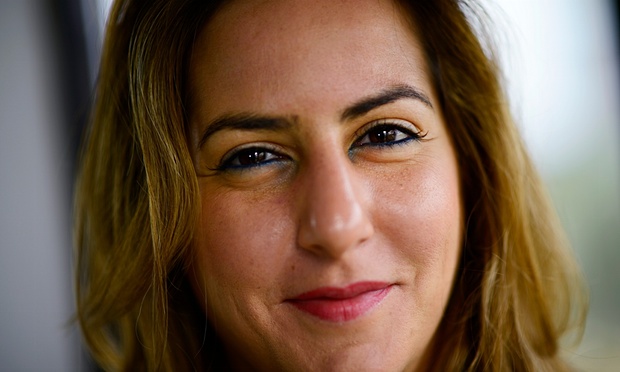
Karma Khayat deputy head of news for Lebanese TV AL Jadeed
The UN-backed tribunal investigating the 2005 assassination of the Lebanese prime minister Rafik Hariri has cleared a journalist of identifying witnesses but found her guilty of contempt of court.
The judgment is the first handed down by the special tribunal for Lebanon, based in The Hague, and has raised questions about media freedom and the priorities of international courts in pursuit of justice.
Judge Nicola Lettieri ruled that Karma Khayat, deputy head of news at Lebanon’s al-Jadeed TV station, had not undermined public confidence in the tribunal but had committed contempt of court by ignoring a court order to remove the broadcasts made in 2012 from the station’s website. The TV station was acquitted of corporate liability on both counts.
Prosecutors had argued that exposure of the witnesses would make others reluctant to testify in the case over Hariri’s assassination, but Lettieri said he had found no evidence to confirm this.
Opening his 57-page judgment, Lettieri acknowledged the peculiarity of the proceedings. “This is an unconventional contempt case,” he said. “It implicates media expression and supposed limits to that expression under the law; it involves a [charge] never before charged in an international court; and most notably, it is the first in the history of international justice in which a legal person is accused of a crime … The journalistic profession may not be used as an impenetrable shield; where different legitimate interests are involved, they must be weighed in light of the priorities in a democratic society.”
He concluded: “With respect to Ms Khayat’s conduct, I found that being wilfully blind to the 10 August 2012 order and having the ability to remove the episodes from al-Jadeed TV’s website but failing to do so, she deliberately violated the order.”
Lettieri said that although some of the witnesses were pixelated in interviews and none was named, there was sufficient information for them to be identified.
Supporters of al-Jadeed said Khayat had been found guilty of only the least serious offence, failing to take material down from a website. Khayat has said she did not receive the email requesting her to do so. She was acquitted of the most serious offence of intimidating witnesses.
Khayat told the Guardian earlier this year that the aim in broadcasting the story was to highlight that confidential information about the tribunal’s witnesses had been leaked, not to identify potential witnesses.
Al-Jadeed describes itself as a secular, pro-democracy pan-Arab station with a mission to fight corruption. It gained international recognition this year when a female presenter disconnected the microphone of an Islamist sheikh during a live interview after he ordered her to “be silent”. The presenter was praised for standing up for women’s rights.



